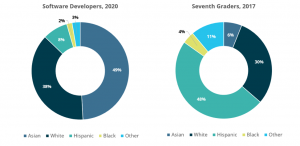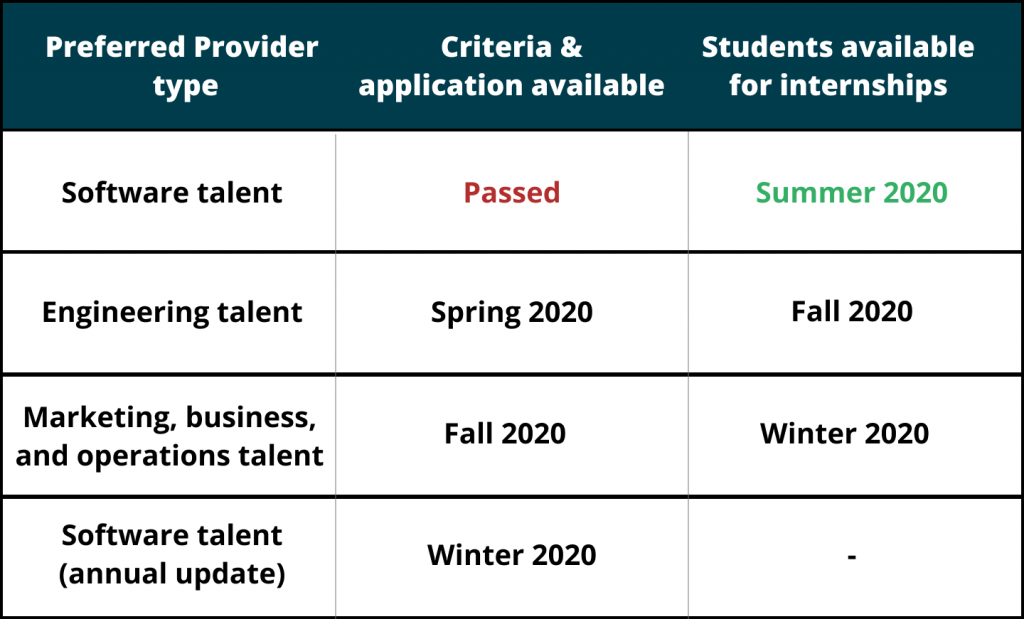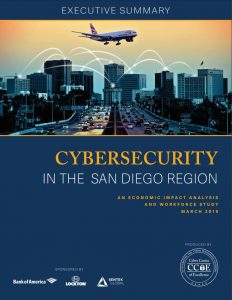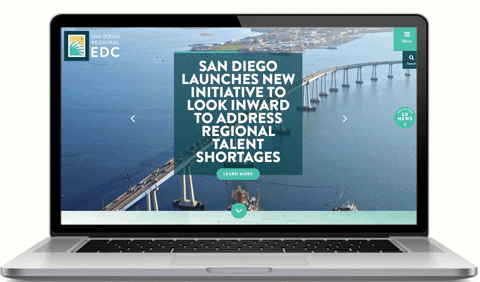The Advancing San Diego (ASD) Internship Program launched this Spring in a remote-capacity amid the COVID-19 pandemic and aims to provide up to 100 San Diego-based companies with fully subsidized interns. This program targets companies with 100 employees or less, which comprise 98 percent of all businesses in San Diego, employ nearly two thirds of San Diegans, and account for 70 percent of job growth. A key issue for these companies has been a lack of time and resources to recruit the skilled talent necessary to continue their growth.
As students close out their Summer internship experiences, EDC has launched this blog series to highlight the innovative local companies that comprise the first cohort of the program, and the interns they hosted.
 In this feature, we sat down with Jaden Risner, CEO and Co-Founder at Family Proud. A part of the inaugural cohort of host companies, Family Proud is a San Diego-based, Veteran-owned and operated company that provides a care management platform which connects patients and families to a community and resources critical to their care, in a time of need.
In this feature, we sat down with Jaden Risner, CEO and Co-Founder at Family Proud. A part of the inaugural cohort of host companies, Family Proud is a San Diego-based, Veteran-owned and operated company that provides a care management platform which connects patients and families to a community and resources critical to their care, in a time of need.
The platform is secure and easy-to-use, and allows families to communicate to their support network, receive support through our care registry, and communicate with others in similar situations through our peer network. Family Proud provides a foundation for families to receive support and love, and enhance care for their loved one.
Why was your company founded?
Family Proud started from a place of love. Our mission has always been to ensure no family need goes unmet and that’s why every day we strive to help as many people as possible with all the love we have to give.
Family Proud is inspired by both co-founders’ personal experiences. I spent 12 years of active duty with the Navy as a helicopter pilot. On one of my deployments, my mother had a heart attack and I was confronted with the struggles of remote care. Several deployments later, my father was diagnosed with cancer. I ended up becoming my mother’s informal caretaker and have personally experienced the burdens of care.
My co-founder Clay was a USMC staff sergeant and was diagnosed with cancer in April 2008. Four months later, after undergoing chemotherapy, Clay’s cancer went into remission. But when his cancer came back a year later, and he was given six months to live, the 13-year Marine Corps veteran set a new goal, the Iron Man. A clinical trial at UC San Diego is ultimately what saved his life, and he went on to compete in the Ironman World Championship triathlon in Hawaii in 2010 shortly after his terminal cancer discharge. Clay committed himself back to patient care, became a patient advocate, and went back to school. Clay is now a healthcare executive and Family Proud’s Chief Strategy Officer.
Tell us about your experience building a small business/startup in San Diego. What resources, services, and/or organizations were most valuable for supporting your Family Proud’s growth?
San Diego has a great startup ecosystem. From academia to events and coworking spaces, Family Proud has been fortunate to lean on the community to support our early growth. The ASD Internship Program is an example of the collaborative support available in San Diego—working together to support innovation, development, and growth for the greater San Diego economy.
Has your company pivoted as a result of COVID-19?
Although our initial market focus was on the pediatric cancer and Veteran communities within the San Diego region, COVID-19 has opened our service aperture to a far greater audience in need. For example, to broaden our impact, we rolled out our “Digital Care Kit” program—a custom PDF e-package consisting of care registry credit, relevant resources, products, services, lessons learned, and peer connections based on the recipient’s location and adversity. Family Proud vets families in need and connects them with a care kit, which has been sponsored by a generous donor. To request or sponsor a Family Proud Digital Care Kit, please visit our website.
Tell us a little bit about your interns and the value they bring.
As a small business in San Diego, we’ve been fortunate to receive consistent news/opportunities from the City and EDC newsletters. The timing of the launch of the ASD Internship Program happened to coincide with our product development schedule. Our software developer intern, Shaeli, was an amazing addition to the technology team. She brought a fresh, outside-the-box perspective, was resilient and flexible to the new virtual/remote collaborative environment, and always approached her weekly tech sprint challenges with a positive and determined attitude. Family Proud was very lucky to have Shaeli onboard with us this Summer!
Company contact info:
- Website: familyproud.com
- Facebook: @FamProud
- Instagram: @familyproud
- LinkedIn: Family Proud
Learn more about Advancing San Diego and our internship program.
You might also like to read:
 In this feature, we sat down with Anna Kelley, ASD intern at
In this feature, we sat down with Anna Kelley, ASD intern at 






